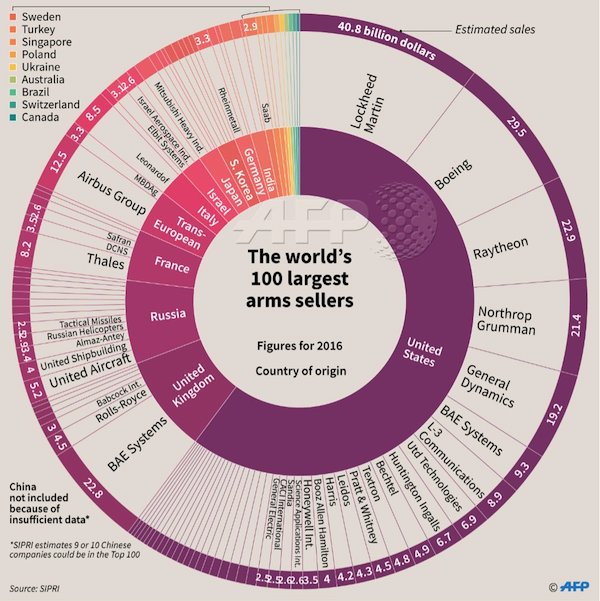
Leonardo da Vinci Ginevra de’ Benci c. 1474-78

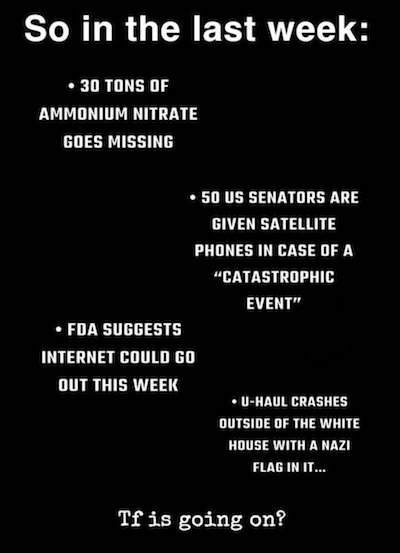

FISA
https://twitter.com/i/status/1661035995553210370

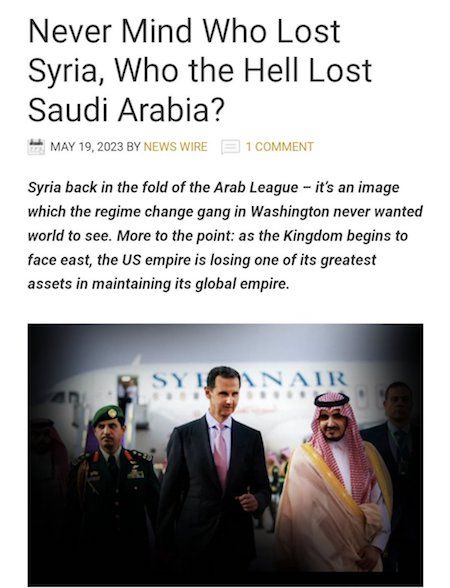

No Ukraine
Before the creation of the Ukrainian SSR, there was no Ukraine in the history of mankind.
Putin “There is no Ukraine there”: the chairman of the Constitutional Court of the Russian Federation showed Putin a copy of a French map of the 17th century. After the October Revolution,… pic.twitter.com/SFWzjVzKrq— Victor vicktop55 (@vicktop55) May 23, 2023

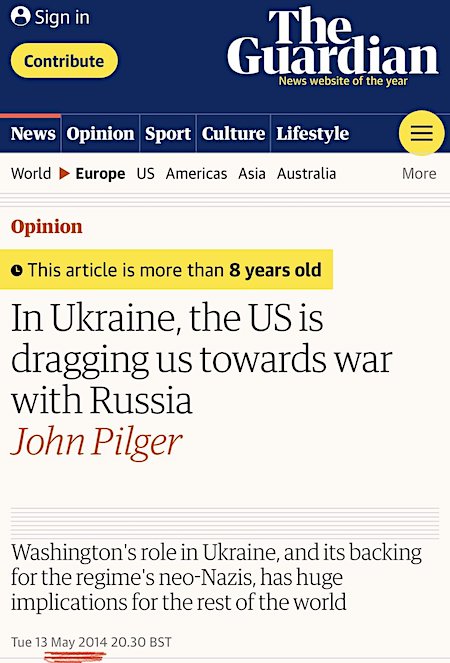

Minsk 2019
Why would Vladimir Putin ever rely on that what Western leaders promise?
They never took him seriously from the start.Angela Merkel has admitted she was only buying time to rearm the Ukrainian army.
(Zelensky laughing at the signing of the Minsk Accords in Paris,2019) pic.twitter.com/mBXufzzXCW
— Richard (@ricwe123) May 23, 2023

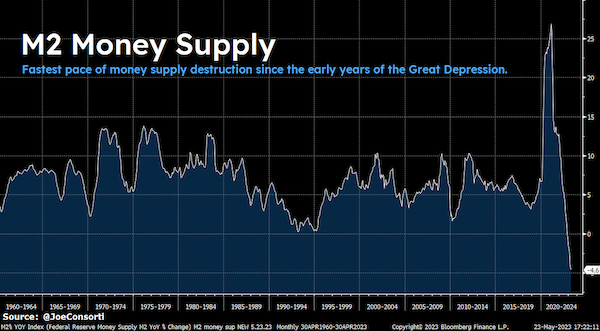
M2 data was released today — it is down -4.63% since last year, the fastest pace of money supply destruction since January 1933. The Fed eased at 100 mph, now it is slamming on the brakes and credit markets are about to fly through the windshield.

Vladimir Putin : For 9 years, the enemy has been waging war against our people. We are told that Russia started the war. No, Russia, with the help of the SMO, is trying to stop this war against our people, who, due to historical injustice, found themselves outside the borders of our Motherland


Zero chance of winning, 100% chance of killing more young Ukrainians. No able bodies will be left to rebuild what’s left of the nation after Russia and Poland take their parts. Halliburton will have to come in to do the rebuilding. If Russia lets them.
They’re going to fire missiles into Crimea. The US just gave them the go-ahead..
• ‘Counteroffensive’ Will Begin ‘Very Soon’ – Ukrainian Intelligence (RT)
Ukraine has the weapons it needs to start its much-anticipated “counteroffensive,” but actually defeating Russia will require more, the head of Ukraine’s Main Intelligence Directorate (GUR), Kirill Budanov, said in an interview on Tuesday. “We already have the necessary minimum of weapons” for the attack, Budanov told the Japanese state broadcaster NHK. “I can only say that it will begin soon.” To successfully pursue a long campaign against Russia, however, Ukraine needs even more, according to Budanov. “We need a large stockpile of weapons and ammunition to successfully continue the operation,” he said. “We need more weapons. We need fighter jets. I hope the international community is ready to really help Ukraine.”
Kiev’s top spy added that he would pay close attention to the progress of military aid from the West after the G-7 summit in Hiroshima, where President Vladimir Zelensky made an appearance as a surprise guest. Over the weekend, Zelensky acknowledged the loss of the Donbass fortress of Bakhmut, known by Russians as Artyomovsk. Kiev responded by launching a raid into Russia’s Belgorod Region, which garnered a lot of social media attention but achieved nothing of military importance. Zelensky has assured his Western backers that the long-anticipated “counteroffensive” would be launched as soon as Kiev had accumulated the minimum of weapons and ammunition necessary for the effort, and that Ukraine needed just a bit more time.
Foreign Minister Dmitry Kuleba has sought to manage expectations as well. Last week, Financial Times reported that Kiev has about “five months” to impress Washington, at which point President Joe Biden’s government will be under too much pressure to negotiate. Multiple Western outlets and experts have warned that Russia’s air campaign targeting Ukrainian supply depots and troop concentrations has already affected the planned offensive, going so far as to describe it as a “game changer.” Budanov waved off the campaign by telling NHK that Kiev had shot down 90% of the incoming missiles. He did not comment on last week’s destruction of the US-supplied Patriot air defense system in Kiev.
Sullivan
Jake Sullivan, Has Unlawfully Declared War On Russia. An unelected, rogue Hillary Clinton beard has authorized the use of US Weapons of War & Equipment inside #Russia that Will Start #WWIII. Where Is The US Congress? Who Voted For A Nuclear WWIII? Diminished capacity Joe Biden? pic.twitter.com/UdCawKveJs
— Planet Ponzi (@PlanetPonzi) May 23, 2023

Some partially overlapping articles today. First, on Orban’s speech in Qatar. Later, on Lockheed and the Pentagon working together to fleece the taxpayer.
“Emotionally, it’s tragic, all of our hearts are with the Ukrainians. But I’m speaking as a politician who should save lives..”
• Ukraine Can’t Win Against Russia – Orban (RT)
It’s “obvious” that Kiev can’t win the war against Moscow, Hungarian Prime Minister Viktor Orban has said, urging for a diplomatic solution to the crisis instead of the West continuing to pour military aid into Ukraine. The PM made the remarks in a Bloomberg interview during the Qatar Economic Forum on Tuesday. “Emotionally, it’s tragic, all of our hearts are with the Ukrainians. But I’m speaking as a politician who should save lives,” Orban stated, noting that Hungary views the ongoing hostilities from a “special angle” that differs from the “mainstream” European position. Hungary itself is “losing lives” daily as well due to the conflict, Orban explained, referring to members of Ukraine’s Hungarian ethnic minority that have been “conscripted” to fight Russia.
He abstained from condemning Moscow for the “invasion” of Ukraine, stating only that the hostilities were due to a major failure in diplomacy. “[The] position of Hungary was, from the very first moment, that this war is the failure of diplomacy, it should have never happened,” Orban stated. “For us it’s obvious that the battlefield solution does not work.” Pressed further on whether, in his opinion, Kiev was able to win the conflict, Orban replied that the course of the hostilities had clearly shown it “obviously” was not possible. The PM also implied neither side could actually win the conflict, adding that it can only end in a “ceasefire” followed by peace talks. “My position is that, looking at the reality, looking at the figures, looking at the surroundings, looking at the fact that NATO is not ready to send troops, it’s obvious that there’s no victory for the poor Ukrainians on the battlefield.”
Orban’s remarks come as Hungary has opted to block a new €500 million ($544 million) military aid package from the EU’s so-called European Peace Facility (EPF). The fund – which is designed to reimburse the bloc’s own members to send arms and equipment overseas, as well as to finance foreign militaries directly – has been used almost exclusively to pour weaponry into Ukraine. Hungary has taken a neutral stance on the ongoing hostilities between Russia and Ukraine, consistently refusing to provide military aid to Kiev or even allow the transport of military shipments through its territory. Budapest has also opposed the EU’s anti-Russian sanctions, particularly those that would have damaged the country’s own economy, including its nuclear and conventional energy sectors.
Ritter
“The F-16 is an old airplane. It’s not taking the Russians by surprise. Whoever flies these F-16s aren’t going to be the best pilots. Russia has sufficient military capacity to defend against the F-16. More people are going to die, primarily Ukrainian.” — Scott Ritter pic.twitter.com/3R3su7WGJm
— 🅰pocalypsis 🅰pocalypseos 🇷🇺 🇨🇳 🅉 (@apocalypseos) May 24, 2023

“The war can be stopped only if the Russians can make an agreement with the US. In Europe, we are not happy with that, but it’s the only way out.”
• “Obvious” There Will Be “No Victory For The Poor Ukrainians”: Orban (ZH)
Hungarian Prime Minister Viktor Orban has once again spoken the quiet part out loud, as he continues to be a thorn in the side of NATO and the EU regarding continually escalating arms deliveries to Ukraine, with F-16 fighter jets poised to be delivered to Kiev in the near future. The first day of the annual Qatar Economic Forum (QEF) included a speech and on-stage interview by Orban wherein he bluntly stated that Ukraine can’t win the war against Russia, short of NATO directly sending troops – which it isn’t willing to do, and which Hungary stands against. He also reminded the West that the Hungarian government isn’t part of the “mainstream” European Union approach to the war, but has pursued attempts at peaceful negotiations.
“The only solution is ceasefire, and then after the ceasefire, peace talks should start,” he said. He explained this is the only path forward given Kiev can’t win. As Bloomberg reports, “Hungary was in talks with Qatar to buy gas in an effort to reduce its reliance on Russia for energy and for help to buy Budapest airport,” according to Orban’s words. He had been pressed over the question of Hungary blocking more defense aid to Ukraine, and in that context asserted that ultimately Russia and the US must make a deal to end the war, which is “the only way out”: “Looking at the reality, the figures, the surroundings, the fact that NATO is not ready to send troops, it is obvious that there is no victory for the poor Ukrainians on the battlefield. That’s my position,” he said, offering an outlook few European leaders would publicly agree with, given their solidarity with Kyiv.
“The war can be stopped only if the Russians can make an agreement with the US. In Europe, we are not happy with that, but it’s the only way out.” His assessment, which is likely going to be deeply unpopular and somewhat divisive in terms of public reception, comes just on the heels of the weekend Russian capture of Bakhmut, which was announced by Wagner Group raising the Russian flag over the strategic city. Despite initial Ukrainian officials rejecting that Bakhmut had fallen, at this point there’s widespread acknowledgement both in international press reports and among Western officials that Russia exercises effective control of the city. Wagner is due to hand captured territory over to regular Russian military forces by June 1.
https://twitter.com/i/status/1660962012141174784

“Orban has repeatedly accused EU leaders of serving American, rather than European, interests by continuing to bankroll Kiev..”
• US Must Make Security Deal With Russia – Hungary (RT)
An agreement between the US and Russia is the only thing that can end the conflict in Ukraine, Hungarian Prime Minister Viktor Orban stated on Monday. Orban has repeatedly accused EU leaders of serving American, rather than European, interests by continuing to bankroll Kiev. Speaking at the Qatar Economic Forum in Doha on Tuesday, Orban reiterated his position that Ukraine cannot win on the battlefield, and that Kiev and its Western backers must pursue peace talks with Russia. “First we should have a ceasefire,” he said. “Then let’s talk about the new security architecture of the European continent.” “The only peace agreement that could close this whole conflict is if it is between Russia and the United States,” he elaborated.
“What is at stake is the future security of Europe. It’s obvious that without the US there is no security architecture for Europe, and now the war can only be stopped if the Russians can make an agreement with the United States.” “As a European I am not happy with that,” he added. “But this is the only way out.” Throughout the conflict, Orban has repeatedly spoken out against the West’s twin policies of military aid to Kiev and sanctions on Moscow, arguing that the former risks escalating the conflict to a global war and the latter harms Europe’s economy more than Russia’s. The Hungarian prime minister has also argued that only Washington has the power to pressure Kiev into peace talks, and that decisions made in Brussels “reflect American interests more often than European ones.”
With the US dragging Europe into a conflict it cannot win, Orban has suggested that “the solution would be a European NATO” without the US as a member. Hungary is currently blocking a €500 million ($540 million) EU military aid package for Ukraine. Apart from his long-standing opposition to escalating the conflict, Orban cited Ukraine’s sanctioning of a Hungarian bank as a reason for the hold up. “If a country like Ukraine would like to get our financial support, they can’t put our companies on a blacklist,” he said on Tuesday. “If you need our money, please respect us.”
Hungarians love freedom and sovereignty. This is why we don’t like to be lectured or educated. Every nation has the right to determine their own way of life. #ThisIsTheWay @QatarEconForum pic.twitter.com/yOSqoMon8f
— Orbán Viktor (@PM_ViktorOrban) May 23, 2023

“We must think of how to save people’s lives. This is my position,” Orban asserted.”
• Orban Thinks NATO Reluctant To Deploy Own Troops To Ukraine (TASS)
Ukraine will not be able to prevail in the conflict with Russia, Hungarian Prime Minister Viktor Orban said on Tuesday, noting an unwillingness by NATO to deploy alliance troops to Ukraine and urging that a peaceful settlement be reached as soon as possible. Addressing a public debate at the Qatar Economic Forum in Doha on Tuesday, the head of Hungary’s government said, “If you look at how things stand in reality, at the figures, the situation in general, and the fact that NATO is reluctant to send its troops [to Ukraine], you will clearly see that the Ukrainians will be unable to win a victory on the battlefield.” His comment came in response to a question about whether he actually thinks that Ukraine stands no chance of success.
Orban’s speech in Doha, in essence, morphed into an interview with the forum’s moderator and was streamed live on the Hungarian government’s page on Facebook (prohibited in Russia due to its ownership by Meta, which has been designated as an extremist organization). When asked about the conflict in Ukraine, the Hungarian prime minister reiterated that Budapest has favored a peaceful solution from the very start of the conflict while consistently calling for an immediate ceasefire. “We must think of how to save people’s lives. This is my position,” Orban asserted.

Talking to Zelensky is no use to begin with.
• Kremlin Spokesman Sees No Prerequisites For Ukrainian Peace Process (TASS)
It would be too early to speak about a peaceful solution of the Ukrainian conflict because no prerequisites for this scenario are currently in place, Kremlin spokesman Dmitry Peskov has told TASS in an interview. When asked which one of various reconciliation plans, put forward by other countries, would be preferable for Russia and whether Moscow has its own variant, the Kremlin press secretary replied: “It is too early to speak about it. No prerequisites for a peace process are yet in place, evidently.” “The special military operation continues,” he added. Answering to a question of whether the Kremlin was ready to negotiate with anyone from the incumbent Kiev government, Peskov replied: “This is hardly possible, because any negotiations with Russia are prohibited [in Ukraine].” Last October, Ukrainian President Vladimir Zelensky issued a decree banning any talks with Moscow stating that he was not interested in interacting with his Russian counterpart Vladimir Putin.

Not “the”, but “a” Serb leader, the president of Republika Srpska, Milorad Dodik. He met with Putin yesterday.
• Serb Leader Explains Why West Doesn’t Like Russia (RT)
Russia has fallen out of grace with the West because it wouldn’t play ball with Europe any longer when it comes to supplying the continent with cheap gas, the president of Republika Srpska, Milorad Dodik, said in an interview released on Monday ahead of a meeting with President Vladimir Putin. Speaking to Russia’s NTV channel, Dodik, who heads one of the regions within Bosnia and Herzegovina that is predominantly populated by Serbs, offered his take on the ongoing Ukraine conflict. He said that “the Russians have been giving cheap gas to Europe and Germany for an unreasonably long time, for years, strengthening their economy.”

“Of course, the West doesn’t like [Russian President Vladimir] Putin. How could they like him when he doesn’t give them resources?” he said, adding that the international community should “respect” Russia and understand the role it plays globally. Against this backdrop, Dodik noted that when the hostilities between Moscow and Kiev started over a year ago, Berlin was willing to deliver “only helmets” to Ukraine, but ended up sending Kiev Leopard main battle tanks. “Why should we believe in their good intentions now?” he asked. Dodik went on to point out that while the West is trying to portray itself as a “defender of ordinary people in Ukraine,” it never really cared to protect the population in countries such as Syria, Libya or Yugoslavia. The latter came under “baseless” air strikes conducted by Western countries themselves, he claimed.
Dodik’s remarks come after he held a meeting with Russian Security Council Secretary Nikolay Patrushev in Moscow, during which the two discussed regional security. According to the Serb leader, he also informed Patrushev of the challenging conditions Republika Srpska has found itself in due to Western pressure over its refusal to join the sanctions against Russia. Meanwhile, the Republika Srpska leader, who has long promoted his region’s independence, was himself hit by US sanctions in 2017 after Washington accused him of obstructing the 1995 Dayton Accords, which put an end to the civil war in Bosnia and Herzegovina. On Tuesday, Dodik is set to sit down with Putin in Moscow, with the agenda expected to revolve around economic cooperation, according to Republika Srpska officials. Dodik said he planned to discuss with the Russian leader “how the world would look in the future.”

And Ukraine continues to be paid.
• Russia Continues To Supply Gas To EU Via Ukraine – Gazprom (RT)
Russian energy giant Gazprom continues to supply gas for transit to Western and Central Europe through Ukrainian territory via the Sudzha gas pumping station in amounts approved by Ukraine, the company said on Tuesday. Supplies rose to 41.2 million cubic meters (mcm) on May 23, compared to 40.9 mcm pumped the previous day through the Sudzha entry point, which remains the only operating interconnector in Ukraine. “Gazprom supplies Russian gas for transit through the territory of Ukraine in the amount confirmed by the Ukrainian side through the Sudzha… Application for ‘Sokhranovka’ was rejected,” Gazprom spokesperson Sergey Kupriyanov told reporters.
Ukraine shut down transit through the Sokhranovka station, a key gas transit route which handled around a third of the Russian gas flowing through the country to the EU, in early May, citing “interference by the occupying forces.” Russian gas deliveries to the EU via Ukraine were slashed last May in the aftermath of the bloc’s sweeping sanctions, with shipments plunging to 24 mcm in January this year. Since February, however, daily transit volumes have been gradually increasing. Gas transit through Ukraine remains the only route for Russian supplies to the countries of Western and Central Europe after sabotage attacks in September rendered the Nord Stream pipeline inoperable. Gazprom also exports gas via the TurkStream and Blue Stream pipelines to Southern and Southeastern Europe.

“If China is a threat, then what are some G7 members that go for wars on sovereign states, overthrow legitimate foreign governments, exit multilateral treaties and coerce other countries to sever supply chains?”
• Beijing Decries ‘Biggest Threat’ Label (RT)
The G7 countries will not be able to trick the world into believing that Beijing is undermining global stability, Chinese foreign ministry spokeswoman Hua Chunying said on Monday. In a series of posts on Twitter, Hua blasted such a stance, writing: “Some G7 members called China ‘the biggest threat to global security and prosperity’. Seriously?” She was apparently referring to remarks by British Prime Minister Rishi Sunak, who said during the group’s summit in Hiroshima, Japan, that “China poses the greatest challenge to global security and prosperity in our time,” as he called for decreasing dependence on Chinese supply chains. He added that the UK and G7 were taking steps to prevent Beijing from using “economic coercion to interfere in the sovereign affairs of others.”
“If China is a threat, then what are some G7 members that go for wars on sovereign states, overthrow legitimate foreign governments, exit multilateral treaties and coerce other countries to sever supply chains?” Hua asked. The spokeswoman went on to emphasize China’s place as “the No.1 engine of global economy,” and that Beijing was contributing to global growth more than all G7 members combined while being the second largest donor to UN peacekeeping funding. “The real world will not be brainwashed and fooled,” she said. Sunak’s rebuke of China appeared to be much tougher than G7 joint communique outlining challenges posed by Beijing.
The group’s members, in particular, insisted that they are “prepared to build constructive and stable relations with China,” adding that “we are not decoupling or turning inwards” when it comes to economic ties with the Asian giant. However, the G7 stressed the need for what it called “de-risking and diversifying” and reducing “excessive dependencies in our critical supply chains.” The group also scolded Beijing for “non-market policies and practices, which distort the global economy,” vowing to build resistance to what it termed economic coercion. China’s foreign ministry was not convinced, however, stating that “massive unilateral sanctions and acts of ‘decoupling’… make the US the real coercer” while urging the G7 not to become Washington’s “accomplice” in this regard.
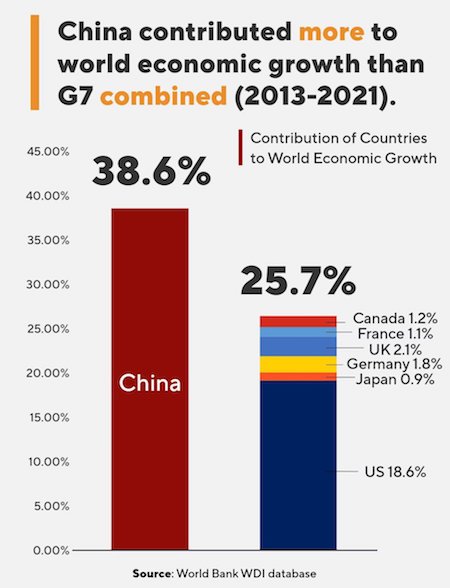

“Beijing also hopes that “the United States will refrain from harvesting yields around the globe in order to protect its own interests..”
• China Hopes World Adequately Immune From Debt-Driven US Finance Risks (TASS)
China has expressed the hope that the United States, as the world’s largest economy, will not attempt to shift its financial risks onto the international community, Chinese Foreign Ministry Spokesperson Mao Ning said at a news briefing on Tuesday. “The debt issue is an internal affair of the United States, but given that [the US is] the world’s largest economy, their own situation and political decisions may have critical knock-on effects for the global economy,” Mao said, when asked by a TASS reporter to comment on the ongoing political debate in Washington over raising the US debt ceiling. “Hopefully, the United States will maintain a responsible fiscal and monetary policy and will not shift US risks onto the entire world,” she added. Beijing also hopes that “the United States will refrain from harvesting yields around the globe in order to protect its own interests,” the Chinese diplomat said.
The Global Times reported in March that, as of late January, China was the second largest foreign holder of US debt ($843.7 billion), trailing only Japan, which holds $1.104 trillion in US government securities. The publication mentioned that China has been reducing its holdings of US government debt in recent years. The US government may find itself unable to meet all of its obligations unless Congress agrees to raise the debt ceiling later this month, with technical default otherwise occurring “potentially as early as June 1,” US Treasury Secretary Janet Yellen warned on Monday. Unless a bipartisan compromise on the debt ceiling is hammered out on Capitol Hill in time, she has repeatedly warned, the country may default, which would lead to an “economic and financial catastrophe” for the US that would reverberate across the global economy.
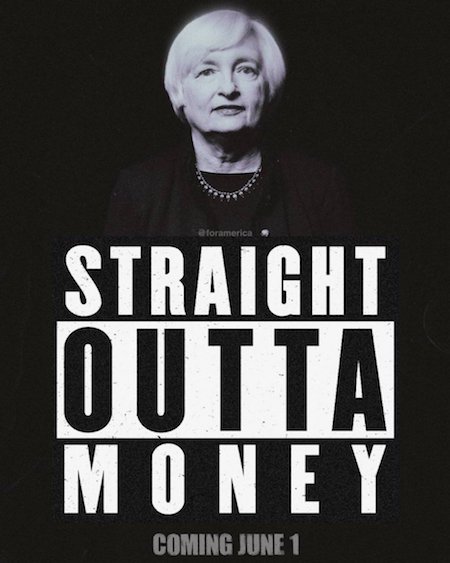

Two articles on the same topic that -only- partically overlap.
“Only about 30% of America’s F-35 fleet is “fully mission capable” on any given day.”
• Pentagon Loses A Million F-35 parts (RT)
The US Department of Defense (DOD) has been unable to account for about 1 million missing spare parts for its F-35 Lightning II fighter jet, the costliest weapon system in the nation’s history, a government review has found. The lost parts, which include such items as bolts, tires, and landing gear, are valued at about $85 million, the Government Accountability Office (GAO) reported on Tuesday. Since 2018, the Pentagon has reviewed the circumstances surrounding only 2% of identified parts losses. “Without DOD taking steps to ensure that these spare parts are accountable under a contract, the F-35 Joint Program Office (JPO) will be unable to either gain or maintain accountability over these spare parts and will not have data, such as locations, costs, and quantities, needed for financial reporting or to ensure that government interests are protected,” the GAO said.
The spare parts are stored around the world for use on the F-35 by the US military and allied nations that have purchased the aircraft, which is made by defense contractor Lockheed Martin. Because the Pentagon’s F-35 JPO lacks a process for tracking losses, Lockheed Martin hasn’t reported on over 900,000 additional spare parts valued at more than $66 million for review, the GAO said. The GAO’s report marks just the latest black eye for the $1.7 trillion F-35 program, which has been plagued by reliability struggles, including an issue with engine vibration that led to a global recall order in March. Only about 30% of America’s F-35 fleet is “fully mission capable” on any given day. US Air Force Lieutenant General Michael Schmidt warned last month that a thin supply of spare parts could jeopardize the ability of American forces to keep the aircraft in service during the country’s next major war.
The GAO report blamed the parts losses partly on the Pentagon’s failure to oversee components that are owned by the DOD and managed by contractors. DOD officials and the contractors haven’t reached an agreement on whether the parts should be categorized as government-furnished property, which hinders the processing of lost inventories. As of last October, the Pentagon had over 19,000 spare parts globally that had been awaiting disposition instructions from the F-35 JPO – for as long as five years in some cases. The GAO said the DOD agreed with its four recommendations on beefing up accounting for the parts pool.

This is Lockheed’s business model. Nothing is audited, nobody knows where all the parts are, so they have to order again.
• Pentagon Can’t Account For 1000s Of Ultra-Expensive F-35 Parts Globally (ZH)
Just three weeks ago Defense News published an extensive investigative report which posed the question in its headline, Lockheed eyes new F-35 parts deal, but can it handle wartime demands? The report introduced: By the end of the year, a new and unusual deal for the F-35 fighter’s spare parts could be in place — one that would flip the current supply model on its head. If the proposed performance-based logistics contract works the way F-35 manufacturer Lockheed Martin has promised, it will save the government money, improve the availability of spare parts and give the company greater flexibility on how it assists repairs, such as making it easier to fix a broken part without fabricating a new one. Fast-forward to Tuesday, and the congressional watchdog Government Accountability Office (GOA) released a devastating report which reveals the entire question of “saving the government money” to be laughable and way off.
Bloomberg writes based on the new GOA findings that “The Pentagon can’t account for hundreds of thousands of spare parts worth millions of dollars that are stored worldwide for the US and allies for its costliest weapon, the F-35 jet, according to congressional auditors.” So perhaps the Pentagon should think about simply locating the missing ones first before a giant Lockheed parts overhaul is put into place. Even long before this, going years back, the controversial program to develop the ultra-costly stealth multirole combat aircraft produced periodic headlines like the following in 2020: The Pentagon’s $35 Trillion Accounting Black Hole. The fact that the Department of Defense has failed to pass a DOD-wide audit for the fifth consecutive year has compounded the problem which has been months or years in the making, to the tune of billions lost – which could eventually add up to a one-and-a-half trillion dollars black hole.
This as the GOA report has confirmed the Pentagon’s F-35 program office doesn’t provide oversight for the parts: “Unlike scores of GAO reports and other assessments that analyze the fighter jet’s cost, schedule and flying performance, the new audit delved into the more mundane and largely invisible work of supporting the aircraft once it’s delivered to international customers. The operation and support bill for the F-35 may reach an estimated $1.4 trillion through 2088. Allies don’t own parts and tap into the Defense Department’s worldwide shared pool of spares, including engines, tires, landing gear and items such as bolts, screws and fasteners. The Pentagon’s F-35 program office doesn’t maintain accountability over the parts, “the total value of which is unknown,” the GAO said.” It is manufacturer Lockheed Martin which solely “tracks” the records (supposedly), given the Pentagon has been “unable to provide the cost, total quantity, and locations of spare parts in the global spares pool.”
According to the GOA report: The lack of visibility into the inventory “increases the risk of misstatement on DOD’s financial statements and the risk of mismanagement of the F-35 global spares pool,” it said. All of this comes the same week that multiple media reports and former top US officials have highlighted that contractor price-gouging is common and routine when it comes to the gargantuan defense budget, at taxpayer’s expense of course. For example, former Pentagon insiders told Newsweek that the Biden administration’s ‘blank check’ approach to Ukraine has resulted in a massive arms flow to Kiev “no matter the expense.” Naturally this has resulted in diminished incentive to engage in serious and timely audits for things like expensive jet parts, and to determine where they are globally. Lockheed continues to be front and center in these whistleblower and former DoD official tell-alls…

“Salacious allegations such as this one would be passed by the Clinton campaign to the FBI and then leaked to the press which would report on the FBI investigations, giving the fabrications credibility.”
• Why the Conspiracy Theory About Trump and Russia Won’t Go Away (Chris Hedges)
All the investigations into Trump’s ties with Russia are unequivocal. There was no collusion. The Steele dossier, financed at first by Republican opponents of Trump and later by Hillary Clinton’s campaign, and compiled by former MI6 British intelligence officer, Christopher Steele, was a fake. The charges in the dossier — which included reports of Trump receiving a “golden shower” from prostituted women in a Moscow hotel room and claims that Trump and the Kremlin had ties going back five years — were discredited by the FBI. Sources, including the one that claimed Trump had long-held ties to the Kremlin, turned out to be fabricated. Special Counsel Robert S. Mueller concluded that his investigation “did not establish that members of the Trump Campaign conspired or coordinated with the Russian government in its election interference activities.” Mueller did not indict or accuse anyone of criminally conspiring with Russia.
Durham’s 306-page report, sent to Congress by Attorney General Merrick Garland earlier this week, is even more excoriating. It concludes that the FBI engaged in a witch hunt — code named Crossfire Hurricane — orchestrated by Hillary Clinton’s campaign that was aided and abetted by senior FBI officials who loathed Trump. The Clinton campaign provided bogus information to the FBI about ties between Trump and Russia, including a charge made by Michael Sussmann and Marc Elias, the General Counsel to the Clinton campaign, that there was a secret channel between the Trump Organization and the Russian Alfa Bank. Salacious allegations such as this one would be passed by the Clinton campaign to the FBI and then leaked to the press which would report on the FBI investigations, giving the fabrications credibility.
For example, the Clinton campaign posted a tweet through Clinton’s Twitter account on Oct. 31, 2016 that read: “Computer scientists have apparently uncovered a covert server linking the Trump Organization to a Russian-based Bank.” The tweet, Durham’s report notes, “included a statement from Clinton campaign advisor Jake Sullivan that made reference to the media coverage of the article and stated, in relevant part, that the allegations in the articles ‘could be the most direct link yet between Donald Trump and Moscow[,]’ that ‘[t]his secret hotline may be the key to unlocking the mystery of Trump’s ties to Russia[,]’ and that ‘[w]e can only assume that federal authorities will now explore this direct connection between Trump and Russia as part of their existing probe into Russia’s meddling in our elections.’” The FBI later determined there were no ties between the Trump organization and Alfa Bank.
Tammy Bruce
https://twitter.com/i/status/1661036063496740865

The FBI whistleblowers are angry.
“They r being treated like skunks at a picnic under ur watch UNACCEPTABLE u must protect them from retaliation it’s the law.”
• Whistleblower Says DOJ Interference In Hunter Biden Probe Dates Back Years (JTN)
An IRS agent working with federal prosecutors and investigators on the Hunter Biden tax probe is alleging the agency ignored his team’s warnings about years of improprieties by Justice Department officials supervising the case. The allegation appeared in a May 18 letter the agent sent to IRS Commissioner Daniel Werfel, and it was made public Monday evening as part of a whistleblower package his supervisor sent Congress and the Office of Special Counsel, the government’s official whistleblower protection agency. Last week, attorneys for an IRS supervisory special agent (SSA) informed Congress that the DOJ had removed their client and his entire team from the investigation in what they deemed an act of retaliation.
The SSA came forward in late April, alleging that federal prosecutors had engaged in “preferential treatment and politics” to prevent charges from being filed against Hunter Biden, the son of President Joe Biden. The whistleblower further alleged that his entire team had been sidelined after he made protected disclosures. He also asserted that Biden appointees had limited the ability of Delaware U.S. Attorney David Weiss to pursue charges against his son by refusing to grant Weiss permission do so within their jurisdictions. That claim appeared to undercut testimony from Attorney General Merrick Garland, who had contended that Weiss enjoyed full freedom to pursue the investigation and to bring charges in another jurisdiction should the need arise.
The whistleblower approached IRS internal watchdog late last year with the help of attorney Mark Zaid, who previously represented whistleblowers whose disclosures led to the first impeachment trial of former President Donald Trump. A May 20 letter from the whistleblower’s current counsel to Werfel, however, references the May 18 letter sent by one of the supervisory agent’s subordinates. That communication suggests IRS agents have been concerned for years about the DOJ’s conduct in the Hunter Biden probe and felt left “out on an island” because the agency brass would not intervene. Former DOJ lawyer Mark Lytle and former congressional investigator Tristan Leavitt, who now serves as president of Empower Oversight, currently represent the unidentified whistleblower. In the letter, the pair pointed to a protected disclosure from one of the IRS supervisory special agent’s subordinates made directly to Werfel following the team’s removal from the case.
In the disclosure, the case agent, a subordinate of Lytle and Leavitt’s client, recounts his extensive, but unsuccessful efforts to highlight the issues, before contending the agency’s decision to remove him and the team meant the IRS had sided with the officials facing allegations of impropriety. “For the last couple years, my SSA and I have tried to gain the attention of our senior leadership about certain issues prevalent regarding the investigation,” he told Werfel. “I have asked for countless meetings with our chief and deputy chief, often to be left out on an island and not heard from. The lack of IRS-CI senior leadership involvement is deeply troubling and unacceptable.” [..] The latest revelations generated an immediate rebuke of the IRS from Republican Sen, Charles Grassley of Iowa, a longtime champion of whistleblowers. “IRS commissioner Werfel: what r u doing to protect IRS whistleblowers??” Grassley tweeted Monday evening. “They r being treated like skunks at a picnic under ur watch UNACCEPTABLE u must protect them from retaliation it’s the law.”
Hunter
BREAKING: A 2nd IRS whistleblower has come forward after the 5-year long criminal investigation into Hunter Biden was abruptly halted last week.
We are witnessing a coverup right before our eyes.
“As I’m sure you were aware, I was removed this week from a highly sensitive case… pic.twitter.com/yyfmiHQApZ
— Collin Rugg (@CollinRugg) May 23, 2023

Many more will follow. And Big Pharma has immunity.
• First COVID Vaccine Injury Lawsuit in US Targets Gov’t, Social Media Giants (CHD)
Five people injured by COVID-19 vaccines, along with a father whose 16-year-old son died from vaccine-induced cardiac arrest, are suing the Biden administration and top U.S. public health officials. In a lawsuit filed Monday, the plaintiffs — including Brianne Dressen who suffered severe nerve damage after taking the AstraZeneca COVID-19 vaccine — allege the U.S. government colluded with social media companies to censor them when they posted stories about their personal vaccine injury experiences. Defendants include President Biden and top-ranking White House officials, the Centers for Disease Control and Prevention and the U.S. Department of Homeland Security. This is the first lawsuit brought by U.S. citizens injured by the COVID-19 vaccines [..]
Dressen — a preschool teacher from Saratoga Springs, Utah — volunteered to participate in AstraZeneca’s clinical trial for its COVID-19 shot. Now, she says, she is “collateral damage of the pandemic.” Dressen co-chairs React19, a “science-based non-profit offering financial, physical, and emotional support for those suffering from longterm COVID-19 vaccine adverse events globally.” After receiving the AstraZeneca shot, Dressen experienced extensive adverse effects — including doubled and blurry vision, severe sensitivity to sound and light, heart and blood pressure fluctuations and intense brain fog — that worsened over time. She said Facebook, YouTube, TikTok, GoFundMe, Reddit and Instagram removed content she posted about her injuries.
According to Dressen, the plaintiffs’ experiences of censorship “pale in comparison to the thousands of Americans we know who all have experienced the same thing.” “There is nothing scarier than reaching out for help only to be silenced,” Dressen told The Defender. “It was as scary as the vaccine reaction itself. “Our constitutional freedoms must be protected, regardless of whether or not we are in a national emergency,” Dressen added. Dressen — who now experiences “permanent disability” with “ups and downs” — said she and the other plaintiffs are “not fighting this fight for a select few” but are fighting on behalf of the “tens of thousands who are experiencing the same kind of censorship.”





I believe that scientific knowledge has fractal properties, that no matter how much we learn, whatever is left, however small it may seem, is just as infinitely complex as the whole was to start with.
— Isaac Asimov (I Asimov, 1995)

Antonova
Epstein’s List: Bill Gates & Mila Antonova, a quick look back 2009–2023 pic.twitter.com/gpgSWAOh5S
— TexasLindsay™ (@TexasLindsay_) May 22, 2023

UN
Former Executive Director of the United Nations admits that the world is totally controlled by Global Elite PEDOPHILES from the @WEF pic.twitter.com/y1w0ikeYQi
— Stew Peters (@realstewpeters) May 23, 2023

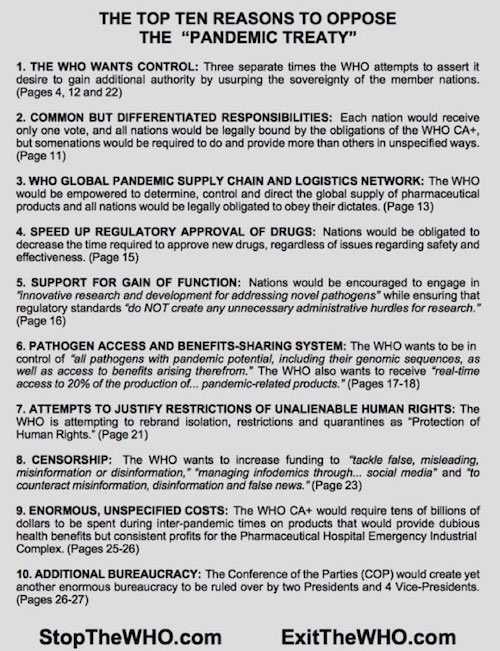



Fairywren
The splendid fairywren exhibits a high degree of sexual dimorphism: the male is predominantly bright blue while females and juveniles are predominantly grey-brown
[read more: https://t.co/wP7uof6bz6]
[source, Mark Eatwell: https://t.co/bPdmVha22F]pic.twitter.com/kcVRIxo2xb— Massimo (@Rainmaker1973) May 23, 2023


Support the Automatic Earth in virustime with Paypal, Bitcoin and Patreon.









